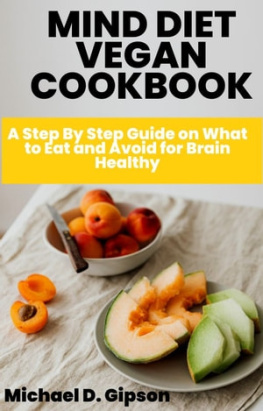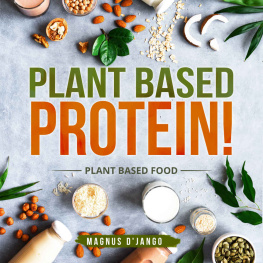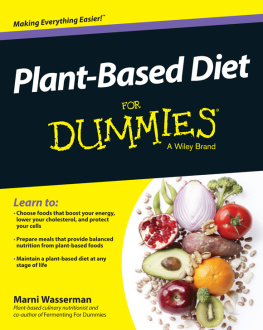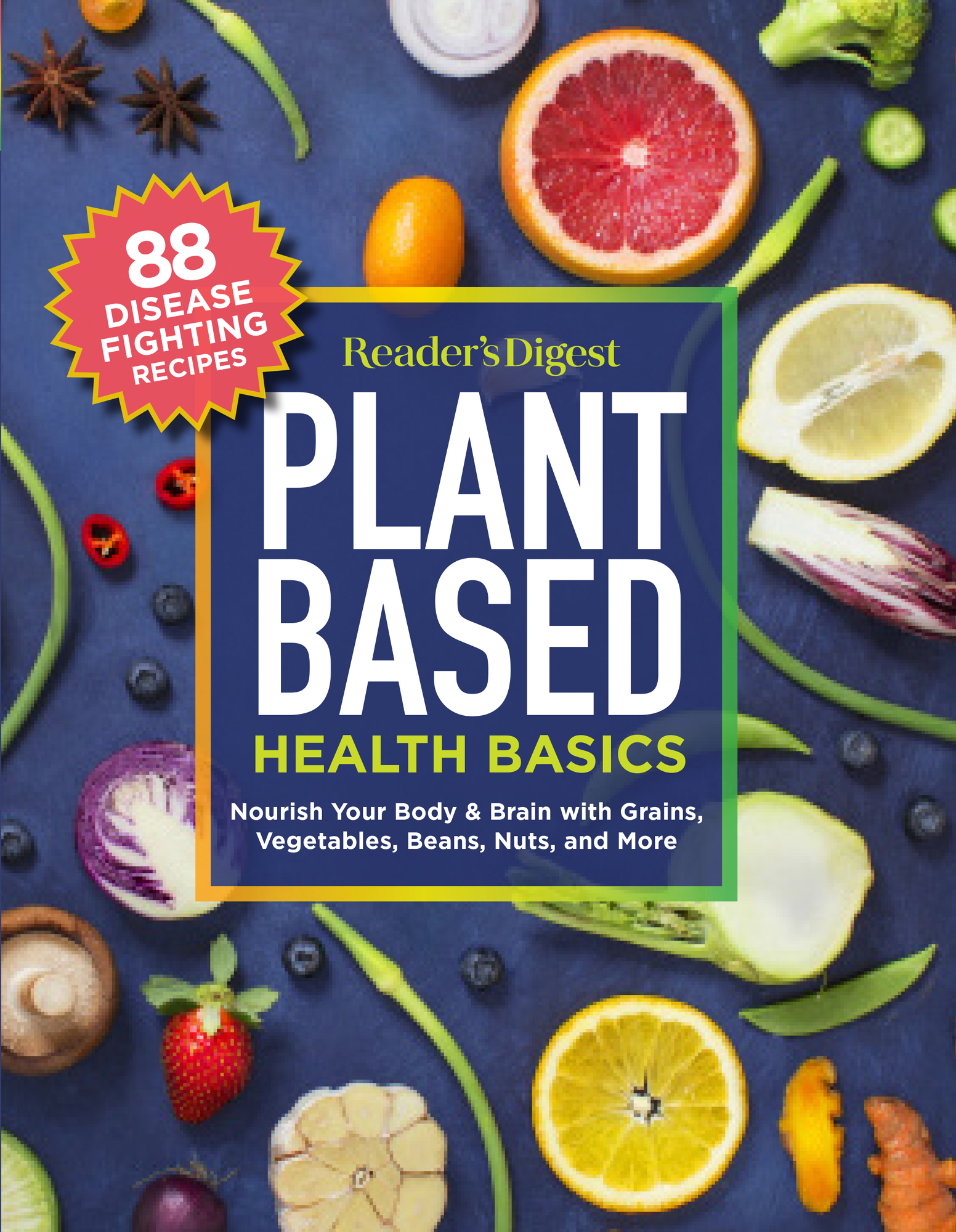Contents
Guide
NOTE TO OUR READERS
The information in this book should not be substituted for, or used to alter, medical therapy without your doctors advice. For a specific health problem, consult your physician for guidance.
A READERS DIGEST BOOK
Copyright 2021 Trusted Media Brands, Inc.
All rights reserved. Unauthorized reproduction, in any manner, is prohibited.
Readers Digest is a registered trademark of Trusted Media Brands, Inc.
ISBN 978-1-62145-551-6 (ppb)
ISBN 978-1-62145-552-3 (e-pub)
We are committed to both the quality of our products and the service we provide to our customers. We value your comments, so please feel free to contact us.
Trusted Media Brands, Inc.
Adult Trade Publishing
44 South Broadway
White Plains, NY 10601
For more Readers Digest products and information, visit our website:
www.rd.com
plant-based basics
An A-to-Z Guide to the Nutrients in a Plant-Based Diet That Help Reverse and Prevent Disease
plant-based basics
What do pickles, chia seeds, sweet potatoes, kidney beans, and bananas have in common? Theyre all superfoodsfruits, vegetables, and seeds that have been elevated to superstar status thanks to decades of scientific research culminating in a deeper understanding of their many health benefits. While superfood trends come and go, the real stars become staples in the diets of all health-conscious Americans. Most vegetables, fruits, legumes (beans and lentils), whole grains, nuts, and seeds are superfoods in their own right. Together, they form the core of a whole food plant-based diet, earning a reputation as the healthiest diet of all.

A plant-based diet can take any of several forms. While a vegan diet is clearly plant-based, so are the different types of vegetarian diets, from the lacto-ovo, which includes some dairy in the diet, to pescatarian, which includes fish but avoids meat, poultry, and other animal products. The most common plant-based diet in America is probably an eating style that focuses mostly on vegetables, fruits, grains, legumes, and other plant foods, but also includes small amounts of animal foods from time to time. The bottom line: The fuller your diet is from plant foods, the more you have to gain from the many health benefits they provide, while youre young and as you age.
Let medicine be your food, and food your medicine.
Hippocrates
Those health benefits arent just about the role of fruits, vegetables, grains, and other plant foods in preventing vitamin and mineral deficiencies, as they were thought to be when the science of nutrition first burst onto the research scene more than 150 years ago. Nor are they solely aimed at weight control, a public health problem of over-nutrition that came to light in early 20th-century America and has since risen to epidemiological proportions in this country. Although these are very important considerations when choosing the types and amount of food you eat on a regular basis, they are perhaps not the most intriguing aspects of the many connections between diet and health.
food as medicine
People of many different cultures have long been conscious of the relationship between food and health. Traditional Chinese healers prescribed particular foods to help invigorate the bodys vital energy. And the ancient Indians, Egyptians, Greeks, and Romans were also keenly aware that medicinal and healing properties of certain foods could play a crucial role in human health. This sentiment was put into words over 2,500 years ago when the father of medicine, Hippocrates, wrote Let medicine be your food, and food your medicine. The idea that food can function as medicine has come full circle. What the people of these ancient cultures believed about the therapeutic value of certain foods, modern nutritional science is now confirming.
the foundation
Over a century ago, scientists discovered the essential food substancesvitamins and mineralsthat remedied common debilitating nutritional diseases and maintained good health. They found that if the body doesnt get enough of the proper nutrients, its normal functioning can become impaired. For example, it was discovered that a calcium deficiency could lead to osteoporosis, a lack of iron could cause anemia, and insufficient folate could result in birth defects. Along with this fundamental understanding of the relationship between nutrients and disease prevention came the realization that a broad array of nutrients and other healthful substances found in food is also required to energize all the bodys cells, foster normal growth and development, and promote longevity.
Over the past few decades, nutrition databases have all but exploded with scientific studies on plant foods and plant-based diets and their positive effects on health. This research not only confirms much of what folk medicine has long suggested about the medicinal qualities of certain foods, but also reveals just how powerful plant foods are when it comes to keeping you healthy throughout every stage of your life and ensuring that you are able to live out your life to the fullest degree possible.
the new nutrition
Today, we are at the forefront of a new and exciting era in nutrition research. Scientists have moved beyond the vitamins and minerals we all know and have been able to identify an army of other compounds that appear to play an active role in preventing, reversing, and/or managing disease. One of the newer discoveries in modern nutrition is the existence and role of thousands of phytonutrients (plant nutrients), sometimes referred to as phytochemicals (plant chemicals). Phytonutrients are powerful substances that, while not technically nutrients, have been found to play a huge role in maintaining good health as well as longevity. Phytonutrients are thought to play a major role in fighting inflammation and oxidative stress (an imbalance of toxins that cause oxidation that damages cells and the antioxidants needed to fight and repair the damage). Both inflammation and oxidative stress appear to underlie numerous chronic diseases, including diabetes, cancer, cardiovascular disease, and neurological conditions. Research shows that a single plant food can contain hundreds of these disease-fighting substances that are also responsible for the brilliant color and distinct flavor and aroma of fruits, vegetables, legumes, nuts, seeds, and whole grains. Everyday foodssuch as green peas, blueberries, sweet potatoes, and applescontain phytonutrients that may help ward off chronic disease and disorders. Coffee, tea, and cocoa also contain beneficial phytonutrients.














